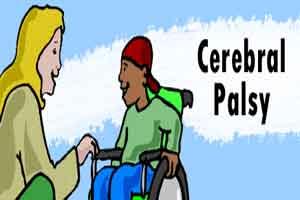- Home
- Editorial
- News
- Practice Guidelines
- Anesthesiology Guidelines
- Cancer Guidelines
- Cardiac Sciences Guidelines
- Critical Care Guidelines
- Dentistry Guidelines
- Dermatology Guidelines
- Diabetes and Endo Guidelines
- Diagnostics Guidelines
- ENT Guidelines
- Featured Practice Guidelines
- Gastroenterology Guidelines
- Geriatrics Guidelines
- Medicine Guidelines
- Nephrology Guidelines
- Neurosciences Guidelines
- Obs and Gynae Guidelines
- Ophthalmology Guidelines
- Orthopaedics Guidelines
- Paediatrics Guidelines
- Psychiatry Guidelines
- Pulmonology Guidelines
- Radiology Guidelines
- Surgery Guidelines
- Urology Guidelines
New training method may improve walking in children with cerebral palsy

Children with cerebral palsy walk usually at lower-intensity stride rates with less variability, which limits their walking activity and ability to participate in daily life. Children with Cerebral palsy are at greater risk for inactivity and functional decline with age.
The researchers, at LSU Health New Orleans and Seattle Children's Research Institute, are investigating a new training method to help children with cerebral palsy improve their walking skills. They want to determine if the short-burst interval training will optimize motor learning resulting in improved walking capacity, mobility and performance for these children. Children's physical activity patterns are very different from adult patterns, yet the current locomotor treadmill training protocols designed to improve walking in children with CP simulate adult protocols.
The study will determine the immediate and retention effects of short bursts of vigorous-intensity locomotor treadmill training in ambulatory children with CP on walking capacity, including community-based walking activity performance. It will determine whether the effects of short bursts of vigorous-intensity locomotor treadmill training on walking capacity and performance are brought about by improved muscle power generation. A unique aspect of the study is that the intervention will be delivered daily, five days per week, in the home setting by trained interventionists.
"We want to make participation in the study as convenient as possible for the children and their families," adds Moreau.
The study will enroll children with CP between the ages of 6 and 10 for a total of 72 participants, 36 at each site. For more information about the trial, visit https:/
"This research is significant because it will be the first step in a continuum of research that is expected to direct locomotor training protocols and rehab strategies across pediatric disabilities and positively effect changes in community-based walking activity and performance for children with CP," says Moreau.

Disclaimer: This site is primarily intended for healthcare professionals. Any content/information on this website does not replace the advice of medical and/or health professionals and should not be construed as medical/diagnostic advice/endorsement or prescription. Use of this site is subject to our terms of use, privacy policy, advertisement policy. © 2020 Minerva Medical Treatment Pvt Ltd